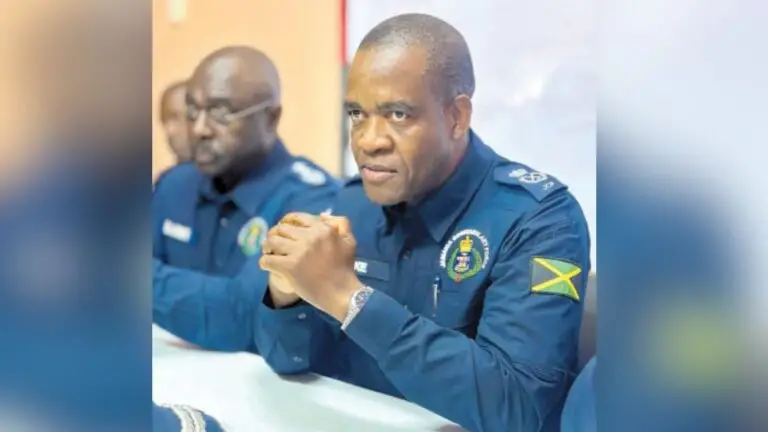In the wake of a sharp increase in fatal shootings by the security forces, human rights watchdog Jamaicans for Justice (JFJ) is doubling down on its calls for greater transparency and accountability in policing, dismissing criticisms from Police Commissioner Dr. Kevin Blake as a deflection from pressing concerns.
The controversy stems from JFJ’s recent statement highlighting the dramatic rise in police-involved killings and calling for urgent oversight measures. In response, Commissioner Blake suggested that the group was merely seeking relevance, arguing that its attention should be directed at the criminals who engage officers in deadly confrontations.
However, JFJ rebuffed the assertion, maintaining that justice and transparency remain critical pillars of public trust in law enforcement.
“If advocating for fairness, transparency, and accountability is deemed seeking relevance, then we embrace that wholeheartedly,” the organization said in a statement on Thursday. “Our focus is, and has always been, ensuring that law enforcement operates within the bounds of justice and the rule of law.”
Body Cameras: A Missing Safeguard?
A key area of concern raised by JFJ is the inconsistent use of body-worn cameras, despite reports that 750 devices have been deployed within the Jamaica Constabulary Force (JCF). The group questioned whether there was any available footage from recent fatal encounters, noting that the absence of video evidence weakens investigations conducted by the Independent Commission of Investigations (INDECOM).
“While body cameras are not a cure-all, their absence in critical moments undermines efforts to establish a clear, factual account of these incidents. We must ask—if these cameras are in use, why do we not have footage to review?” the group queried.
Commissioner Blake, in his response, downplayed the necessity of body camera footage for investigations, a stance that JFJ finds deeply troubling.
“Investigations can still proceed without video evidence,” Blake asserted. “However, having that footage would provide clarity, protect officers from wrongful accusations, and strengthen public trust in law enforcement processes.”
Rising Fatalities, Rising Concerns
While JFJ acknowledges the dangerous conditions officers face in crime hotspots, it emphasized that a growing number of eyewitness testimonies and forensic findings have raised serious concerns about the circumstances surrounding many police-involved deaths.
“We do not make blanket accusations of extrajudicial killings. However, when official reports and eyewitness accounts differ, it is our duty to call for scrutiny,” the organization stated.
The group also pointed out that every fatal shooting incident removes officers from active duty pending an administrative review. This, according to JFJ, underscores the need for preventative measures such as improved de-escalation training and more rigorous enforcement of body camera policies.
Collaboration Over Conflict
In a call for constructive dialogue, JFJ urged the police commissioner and other stakeholders to work alongside civil society organizations to develop policies that effectively balance crime-fighting with civil rights protections.
“The goal is not to hinder policing but to ensure that enforcement methods are just, proportionate, and transparent. Accountability should not be seen as an adversary to security—it is essential to it,” JFJ concluded.
As concerns over police accountability continue to mount, the human rights group remains firm in its demand for clearer policies, better oversight, and an unwavering commitment to justice for all citizens.

